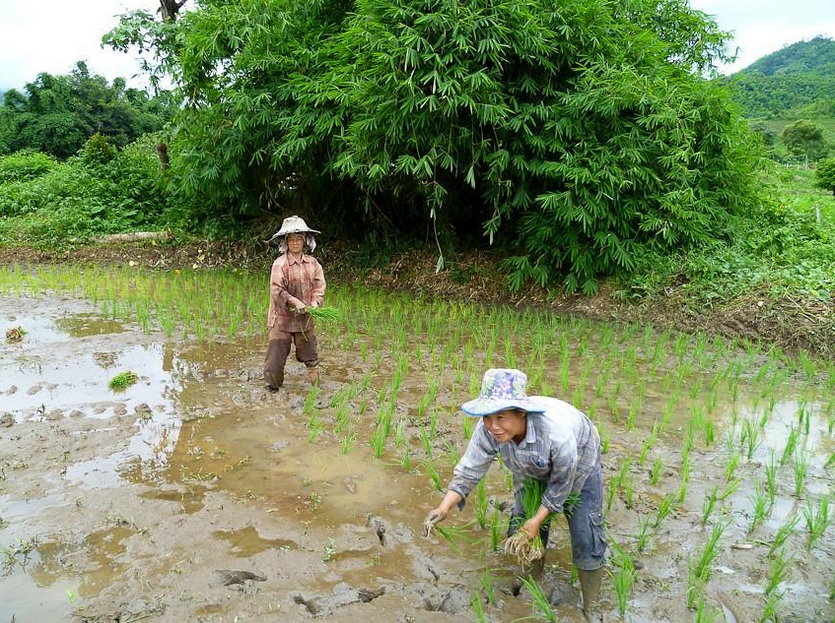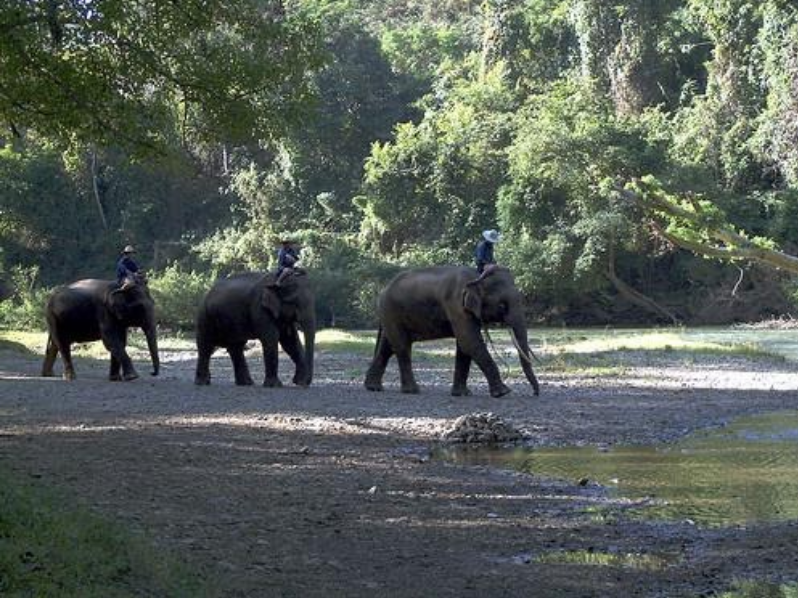Thailand has been hit on many ends this year it seems while combating COVID-19, fighting the worst drought they’ve seen for over 40 years and citizens pointing fingers on the origins of the northern fires that have devastated the country. The internal divisions of the country have only increased with everyone on edge because of these events. Already they’ve had to cancel Songkran, a two-day annual festival for Thai New Year on April 13th. The national water festival has always brought the nation together and is thrown to celebrate change. It usually consists of “spraying water guns and hurling water off pick-up trucks in a free-for-all water fight”, but has now been cancelled due to the global pandemic that has devastated the globe. With over half of Thailand’s COVID-19 cases originating from Bangkok, curfews, quarantines and cancellations have been implemented to keep their citizens safe during this time.
The Environmental Toll
Even worrying still, Thailand has been combatting a drought that started in the middle of last year and has been “forecast to last until July”. Many villages have already declared that they have been impacted by the drought, and with dams only “49% full” and only “26% percent can actually be used” for drinking water and agriculture Thailand has faced a significant drop in the global market as their crops are impacted. The dams especially are impacted by the river being dammed upstream in China, stopping the rivers from flowing as normal and decreasing their ability to grow their crops. Thailand is one of the world’s main exporters of sugar, rice and rubber, but it’s now expected to “decrease over 30%”, especially with Thailand being “the world’s second largest sugar exporter” which has directly impacted the global price of sugar per pound. This has been adding even more pressure to the Prayut government who have been struggling to keep the peace between “Thais living in villages and cities of the north and leaders of Bangkok” due to the fires that have started in Northern Thailand and some stating they think it to be deliberately set. These fires have caused significant damage to air quality, and at least three villagers who have died in separate events related to the forest fires, though some have stated that “the number of lives lost in the recent blazes is higher than the official toll.” Tensions are high and with a country already at a level of distrust with one another, the government is fighting to keep the thin peace that is being held.
COVID-19’s Toll on Thai Economy
Domesticated Thai Elephants, magnetisch, CC 2.0
Amazingly, for the “third day in a row, Thailand has reported no new deaths”. This means that their current efforts to quell the number of cases has worked, even if they were slower to react to the virus and implement screenings, quarantines and curfews. However, while it seems Thailand has found a handle on the virus and contact-tracing, the new COVID-19 laws have meant significant decrease in tourism. Around the country, there are about “4,000 domesticated elephants which visitors pay to trek with” but with the new pandemic guidelines, these parks have been closed, meaning park owners won’t be able to accurately feed their animals. Concerns for the elephants starving have started to increase, while the government has eyes on Thailand’s economy decreasing over 30% in light of their drought. Ultimately, it has been speculated that this will be “Thailand’s worst in more than a decade.”
The last year and a half has seen Thailand take one hit after another in regards to their environment, citizen health and economy. The world is scrambling to keep control of their countries, and like the rest, the Thai government is working night and day to try to keep their citizens paid, healthy, and still maintain trust after closing their borders to international travel and implementing new guidelines.
Elizabeth Misnick
is a Professional Writing and Rhetoric major at Baylor University. She grew up in a military family and lived in Europe for almost half her life, traveling and living in different countries. She hopes to continue writing professionally throughout her career and publish her writing in the future.



